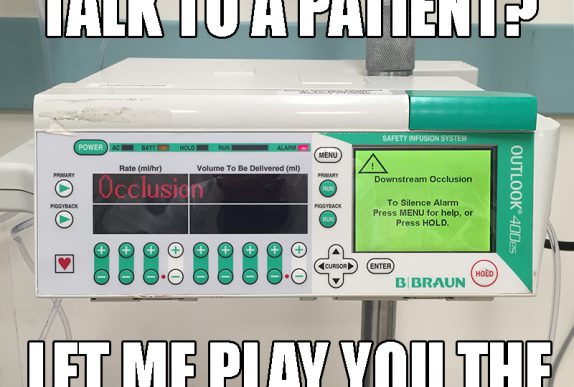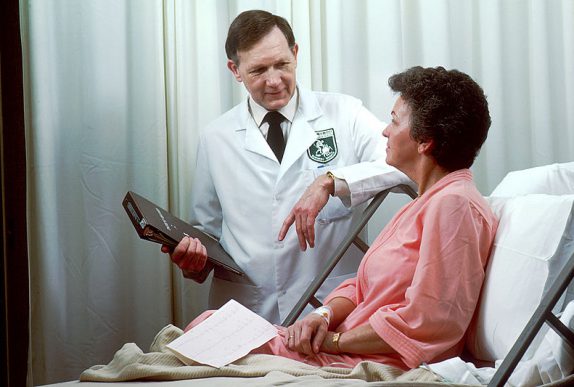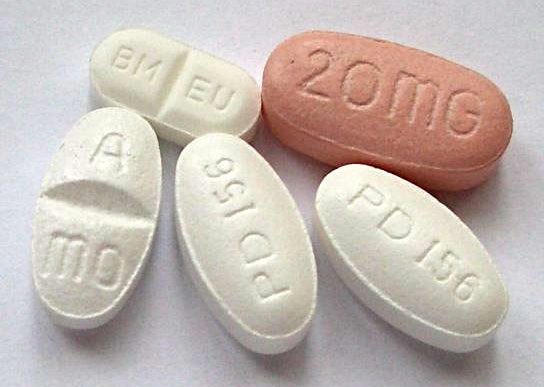Hubris is a killer. Fight it with humility! In medicine, we often don't know why things happen as they do, and it can be hard to say "I don't know" when faced with certain questions. Some patients view uncertainty very unfavorably and want total confidence by their doctor all the time. How do you feel when your doctor says "I don't know"?
In keeping with the theme of women being smarter than men, the authors found no association between the happiness of the marriage or the degree of support from their husbands for women who chose to get a colonoscopy. Basically, women are just better at taking care of themselves independently without the need for their husbands approval, input, or coercion.
Here in Long Island, NY where I practice, it seems to be the norm to have a precolonoscopy visit. This visit serves several important purposes in my mind: I can meet the patient, take a history, and make sure they actually need a screening colonoscopy. I can answer all of the above questions in more detail than the primary doctor can. I also get to give them my basic talk about the purpose of a colonoscopy, how and why we remove polyps, the importance of good bowel prep and how to do it, and the small associated risks of a colonoscopy. We can talk about what to do with medications, and where to arrive on the day of the test, and parking, and all those seemingly small details that can make a patient stressed-out about the test for no good reason.
In every hospital I have ever worked in, from medical school to present day, there is a noise pollution problem of epic proportions. Every medical device seems to emit at least three different types of beeps, each of them being more loud and annoying than the next.
"Is it bad" is an honest question. "Is that bad" is usually also an honest question, but one that is much more difficult to answer. Patients usually ask "is that bad" without actually having a diagnosis yet. At the end of our visit I try to summarize the pertinent issues and I will usually list a few of the possible diagnoses that may explain the symptoms. Then we will come up with a plan to test for these diagnoses. I might say "This is probably irritable bowel syndrome, however some of the symptoms could be consistent with Crohn's disease or ulcerative colitis. We need to do further testing to figure out which one it is."
I call this the "Attribution Sign" and once you notice this is happening it is important to remain objective about the history and not fall into the trap that the patient is (inadvertently) setting for you. That is, don't place too much weight on the patient's attribution and don't let it skew your judgement.
Small beads of sweat were already forming on his forehead before he entered the kitchen. He walked into the back where the chef, who was working furiously, didn’t even notice him. “Excuse me, Chef?” the waiter managed to peep out, barely audible above the kitchen clamor. There was no answer. “Um, excuse me, Chef?” the … Read more
Most patients want to get out of the hospital as soon as possible. No one wants to sleep in a loud hospital room with constant interruptions for rounding, vital sign checks, blood work, etc. Hospitals are a place for people when they’re sick, and if you aren’t sick you shouldn’t be in a hospital. I … Read more
“Are you still taking lasix?” I asked the patient. He was new to the office, here for a routine post-hospital follow up visit after recently being admitted for decompensated cirrhosis with ascites and fluid overload. His dose of lasix was resumed prior to discharge, and he was supposed to be taking 80 mg daily. “I … Read more
Bad news is always hard to break. I would like to think that I get better at breaking bad news after doing it over and over, but it doesn’t make it easier. Some experiences stick with you and this is one of them: Several years ago I was making rounds in the hospital and my … Read more
“Hi, it’s Dr. Smith…are you taking consults today?” the voice on the other side of my short-range hospital phone said. I recognized the callers name as one of the new hospital doctors, known as hospitalists. “Of course,” I said, “what have you got?” I guess some groups have a specific doctor for the day “take” … Read more
I believe in transparency and open communication. I tell my patients the truth and expect the same in return. The truth seems to have a way of coming out eventually anyway. Establishing a complete and accurate history early on in our relationship will lead to less unnecessary testing, less office visits, and far less uncertainty. … Read more











